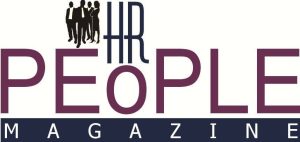HR People Magazine
- The Interview -
Discover Insights from HR Leaders
Welcome to “THE INTERVIEW” – the exclusive destination where HR professionals come to gain valuable insights, strategies, and inspiration from industry leaders. Whether you’re a seasoned HR veteran or just starting your career journey, “THE INTERVIEW” is your go-to resource for staying ahead in the dynamic world of human resources.
“The sad truth is that many employees feel their voices don’t matter, that their feedback falls on
deaf ears and that they do not influence the direction of their organization.
And this isn’t just bad for employees
it’s bad for business”
– Ron Thomas

Esther Akinnukawe
Chief Human Resources Officer MTN Nigeria PLC
What role should HR play in the 21st century to support business growth and profitability?
High-performing companies understand the importance of Human Resources to the overall success of their organizations. If your view of Human Resources is limited to serving as your company’s back-office support, it’s time to reconsider your partnership because HR is actually a major factor in business growth and competitiveness.
Some of the diverse roles of HR towards contributing to business growth and profitability include:
- Talent Acquisition and Retention: Attracting, hiring, and retaining top talent to ensure a skilled and motivated workforce is essential for a long-term business success. The HR function is essential to this process because it identifies applicants who fit the company’s culture and values in addition to having the necessary training and experience. Organizations can better position themselves to handle the demands of a quickly evolving business environment and retain top talent by developing a robust and diverse employee base. A group of driven and talented workers can result in higher output, happier customers, and a competitive advantage in the market.
- An Engaging & Positive Workplace Culture: the HR function is right at the centre of creating and sustaining a positive workplace culture which does not only improve employee morale, but has been shown to increase productivity, reduce absenteeism and turnover, and improve customer satisfaction. Businesses are encouraged to establish an environment where employees feel appreciated, respected, and inspired to contribute their best efforts by cultivating a culture of trust, respect, and diversity. This way, the company will be in a position to attract top talent who are key to the long-term success of a business.
Promoting employee well-being and mental health is another key component of a positive workplace as this leads to improvement in employee satisfaction, which in turn contributes to an engaging and productive workplace.
- Strategic Partner: HR functions as a strategic partner to the business, collaborating with leadership to align HR strategies with business goals. The HR function is essential to this process because it determines the competencies and skills the company needs to reach its objectives and creates and implements initiatives to help employees grow and acquire those competencies. This gives the company a clear direction and vision that all employees can work towards, helping it stay competitive in a business environment that is constantly changing.
- Employee Development: Implementing training and development programs to upskill employees and adapt to changing industry demands is very critical. At MTNN, this is one area that gets a lot of attention as we ensure that our people get access to the relevant developmental trainings that will be beneficial to them and the organisation as well. As focus is shifting from jobs to skills, the HR function can enable a seamless transition towards ensuring skilling, upskilling and reskilling of their people to be adequately prepared with the right skills to accomplish organisational goals and objectives.
- Compliance (Risk management & Business Continuity) – For businesses to be successful, managing, and mitigating risk is crucial because it safeguards the company’s stability, long-term success, reputation, and continuity. Regretfully, not all businesses use risk management techniques. As HR , we play a vital role in ensuring that HR policies and practices are compliant with laws and regulations; identifying potential risks and putting measures in place to mitigate them. This helps to sustain trust with customers, shareholders, and all stakeholder groups, as well as long-term stability and continuous success.
- Performance Management: This is implementing data-driven performance evaluations and feedback to improve employee productivity. Organizations can maintain their competitiveness over time by identifying areas for improvement and making the required adjustments with the support of an efficient performance management system. The HR function is essential to promoting this performance because it manages and inspires workers, establishes procedures and systems to evaluate and enhance performance, and offers growth opportunities.
- Change Management & HR Analytics: Assisting in organizational change initiatives and helping employees adapt to new technologies and processes is so key for the HR function. In addition, using data analytics to make informed decisions and optimize HR processes is relevant to the effectiveness of the decision-making process
By focusing on these areas, HR can contribute to business success and profitability in the modern era.
What should HR Leaders and professionals be doing to influence decisions in their business and have a seat at the table.
I believe that HR already has a seat at the table given the criticality of its role to organisational survival and sustained performance. The HR leaders only need to continually influence decisions in their organizations to justify their seat at the table and maintain credibility by:
- Understanding Business Goals: Align HR strategies with the overall business objectives to demonstrate a clear connection between HR initiatives and organizational success.
- Data-Driven Decision-Making: Utilize HR analytics to provide data-driven insights and evidence supporting HR recommendations and strategies.
- Strategic Thinking: Develop a deep understanding of the industry, market, and competition to contribute valuable insights and foresight.
- Effective Communication: Clearly articulate the value HR brings to the organization and its impact on key business metrics.
- Building Meaningful Relationships: Foster strong relationships with senior leadership and department heads to gain their trust and support.
- Change Management: Be proactive in helping the organization adapt to change, whether it’s related to technology, processes, or culture.
- Talent Development: Implement talent development and succession planning programs to ensure the organization has the right skills for the future.
- Demonstrating ROI: Show the return on investment (ROI) of HR programs and initiatives to justify their importance.
- Legal and Ethical Compliance: Ensure HR practices comply with laws and regulations, minimizing legal risks and promoting ethical behavior.
- Continuous Learning: Stay updated on industry trends, best practices, and new HR technologies to remain relevant and innovative.
By actively engaging in these practices, HR professionals can establish themselves as valuable contributors to the organization’s decision-making processes and secure their place at the leadership table.
What should be the core values and qualities of HR professionals?
I will speak generally to this. Basically, some core values and qualities that are expected of HR professionals should include and not limited to the following:
- Integrity: Uphold high ethical standards and act with honesty and transparency in all HR activities.
- Empathy: Show genuine care and understanding for the needs and concerns of employees.
- Communication: Possess excellent interpersonal and communication skills to engage with employees at all levels, including active listening.
- Confidentiality: Safeguard sensitive employee information and maintain strict confidentiality.
- Problem Solving: Demonstrate strong problem-solving skills to address employee issues and conflicts effectively.
- Adaptability: Be flexible and open to change, as the HR field constantly evolves.
- Professionalism: Maintain a professional demeanor and exhibit a high level of professionalism in all interactions.
- Cultural Competence: Understand and respect diverse backgrounds and foster an inclusive workplace.
- Strategic Thinking: Think strategically to align HR practices with business objectives.
- Continuous Learning: Stay updated on HR best practices, legal requirements, and industry trends.
- Collaboration: Work effectively with cross-functional teams and departments to achieve organizational goals.
- Resilience: Handle high-pressure situations and challenging employee issues with composure.
- Results-Oriented: Focus on achieving measurable outcomes and contributing to the organization’s success.
These values and qualities are essential for HR professionals to build trust, foster a positive work environment, and effectively support the needs of both employees and the organization.
What values have you adopted to navigate the people strategies success in MTN?
At MTN Nigeria, we refreshed our values as Lead with care, Can-do with integrity, Collaborate with Agility, Serve with respect and Act with inclusion. These values are action-oriented ‘doing’ values and correlative behaviours – this means that our values describe how an individual shows up when demonstrating a value in these 3 simple ways – what we do… , how we do it… and how I show up….
These values alongside my CEFLS personal values (candour, excellence, fairness, learning and service) have been invaluable to me in successfully navigating the people strategies at MTN. These values have helped me to deal with various dilemmas faced in my role and continue to shape my responses so that I am able to show up each day with the mindset of a servant leader, of course with the support of great colleagues to navigate the people strategies success in MTN.

If you have a chance to make changes to HR practices in Nigeria what you would be recommending to the professionals and the HR community. For instance, if you are the President of CIPM?
CIPM has performed creditably well over the years. Each successive leadership team has introduced changes to the HR profession that we are proud of and there’s still room for more.
If I were in a position to recommend what more we can do enhance HR practices in Nigeria, particularly as the President of the Chartered Institute of Personnel Management (CIPM), I would suggest the following:
- Change the name of the body to Chartered Institute of People Management (CIPM) – the idea may sound inconsequential, after all, what’s in a name? However, if the narrative is that HR has evolved from traditional personnel management with core focus on administration, to a truly strategic HRM function, it would be great to dismantle the old order by having the national coordinating body reflect the new focus in name and activities. Using ‘people’ as a substitute for ‘personnel’, CIPM is still able to retain its iconic acronym, albeit with an evergreen feel.
- Encourage more embrace of technology (e.g. Generative AI, robotic automation, and so on): Encourage HR professionals to adopt modern HR technology and software for more efficient talent management, data analysis, and automation of routine tasks in their organisations. COVID-19 opened our eyes to the need to be deliberate about adoption of technology solutions. Looking inwards also, CIPM conferences, events and exhibitions should leverage digital technology to encourage paperless conferences thereby generating cost efficiencies and contributing to the achievement of sustainability goals.
- Focus on Data-Driven Decision-Making: Promote the use of data and analytics to make informed HR decisions, including talent acquisition, retention, and performance management.
- Advocate and Collaborate with PWD NGOs and organisations to build a central database of PWD talent pipeline that is accessible to all members of CIPM for PWD resourcing.
- Certification and Accreditation: Strengthen the certification and accreditation processes for HR professionals to maintain high standards of competence and professionalism in the field. An Ethics committee should be established, and if it already exists, be strengthened to drive ethical behaviours and ensure discipline of any erring CIPM member. There is also the need to create more buzz about the HR profession through advocacy visits to schools and institutions and a special certification pathway created for students in secondary schools such that skills to carry out HR functions are harnessed at an early stage.
- Build a Collaborative App for CIPM members – This will serve as a collaboration tool for all CIPM members globally. Ease of reach, social interactions amongst members, quick information on the various CIPM office locations and so on, can be shared on the app.
- Mentorship and Networking: Support mentorship programs and opportunities for HR professionals to learn from experienced practitioners and expand their professional network.
- Training and Development: Encourage continuous learning and development for HR professionals to keep up with evolving HR trends and practices. A learning app that enables you to learn on the go can be considered.
- CIPM as a source of Talent Pipeline: Promote the development of a robust talent pipeline, including succession planning, to ensure a steady supply of skilled professionals for organizations. That way CIPM could serve as a source for seasoned HR professionals for organisations.
- Government Collaboration: Collaborate more with government agencies to ensure that HR practices align with evolving labour laws and regulations in Nigeria. CIPM should be a member of relevant working committees of NESG and should also be leading the charge on labour laws review in collaboration with relevant Government bodies.
- Work-Life Integration: Advocate for ways of enhancing the well-being and work-life integration of members, which in turn will enhance productivity and job satisfaction. Organize tournaments for the various CIPM branches.
These recommendations would help advance HR practices in Nigeria and contribute to the professional growth and development of HR practitioners in the country.
~end
